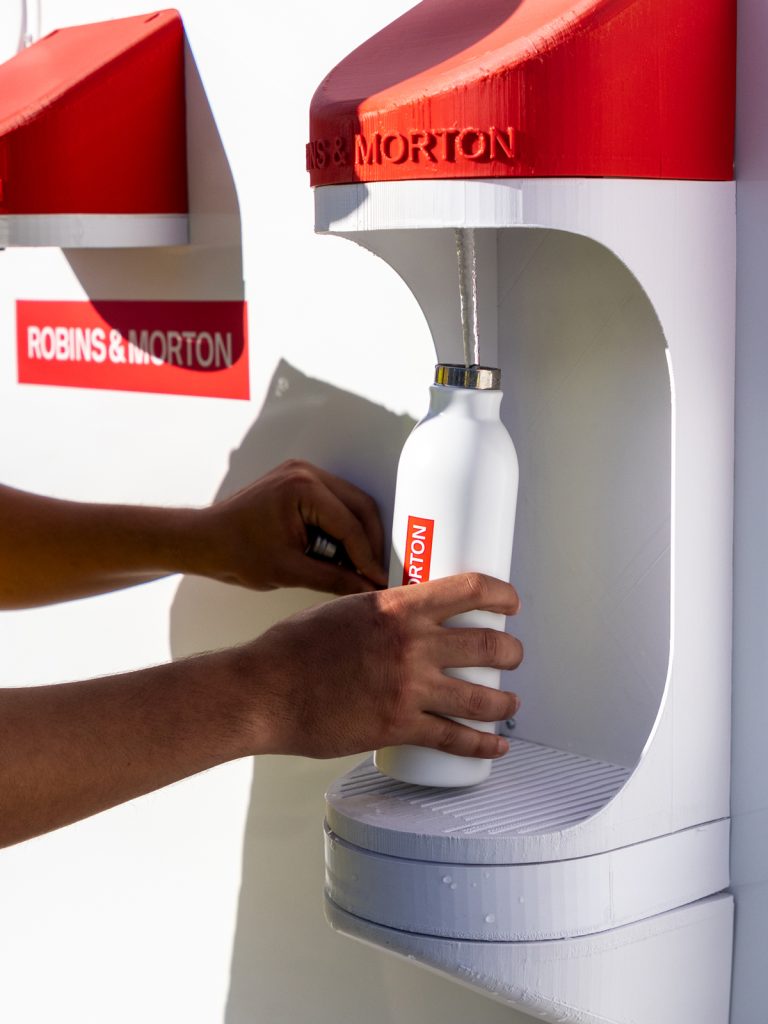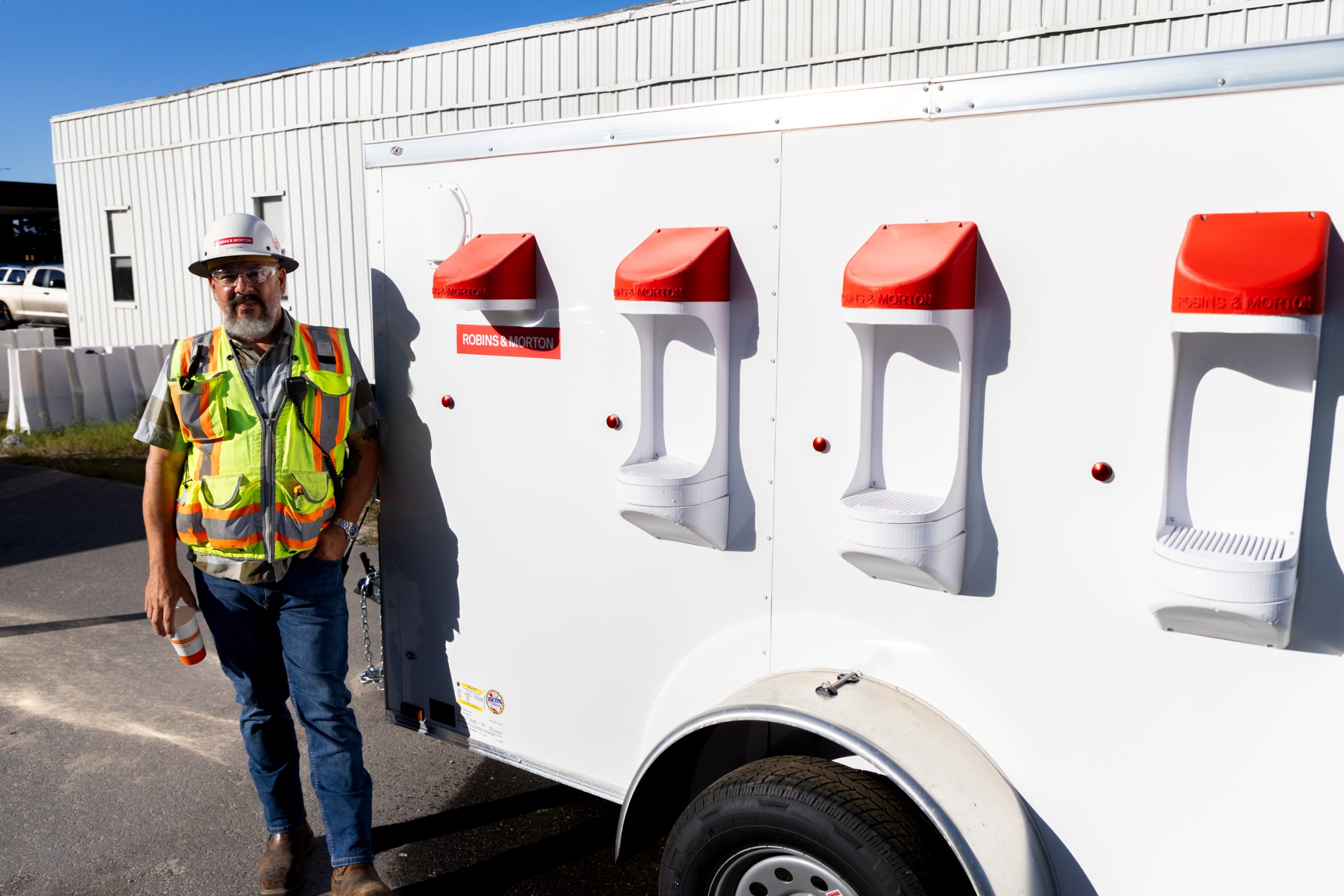Robins & Morton Division Safety Manager Kevin Osani has seen many positive outcomes at the AdventHealth Riverview Hospital project in Riverview, Florida, since it began in 2021.
He’s proud of his team for the excellent work they’ve done on the four-story, 282,000-square-foot hospital set to open this year in one of the fastest-growing communities in Hillsborough County.
Along the way, and with an eye toward a more sustainable jobsite, Kevin devised a plan to address the years-long challenge of eliminating single-use plastic water bottles onsite.
Between the Robins & Morton team and trade contractors working on the project, the jobsite was using about eight pallets of plastic water bottles a month. During the warmest months, water consumption increased, as expected.
Not only did that create a significant amount of plastic waste, but it also became apparent to Kevin that there could be a better, more efficient way to provide cold, refreshing water to our team members working in the Florida heat.
 So, Kevin got to work, bringing his ideas to the Robins & Morton Innovation Lab. He collaborated with Innovation Lab Manager Steve Moore and Senior Sustainability Manager Jackie Mustakas to come up with a solution for the site. The team needed a durable, portable, serviceable, and customizable platform to deliver chilled, clean water in a demanding construction environment. The result: Kevin and Steve began building a construction-grade water bottle refill station prototype, named Water on Wheels.
So, Kevin got to work, bringing his ideas to the Robins & Morton Innovation Lab. He collaborated with Innovation Lab Manager Steve Moore and Senior Sustainability Manager Jackie Mustakas to come up with a solution for the site. The team needed a durable, portable, serviceable, and customizable platform to deliver chilled, clean water in a demanding construction environment. The result: Kevin and Steve began building a construction-grade water bottle refill station prototype, named Water on Wheels.
Kevin started with an enclosed trailer that would require only an outside power source and a water supply line. Steve used a 3D printer to create four dispensers that were embedded into one side of the trailer. Inside, Kevin added a chiller capable of cooling 32 gallons of water per hour to 50 degrees. He completed the trailer with both carbon and UV filters for purification.
“We built it from the ground up, with nothing really to base it on,” Kevin said.
Once it was wired for power and the water lines were connected, all that was left to do was a safety test.
“Water was tested at the source – our office trailer water supply when it is connected to local service,” Kevin said. “It was certified bacteria-free at that time via a Bac-T testing process. Additional samples were delivered to a local laboratory, and a water quality test was done to detect dissolved solids, mercury, zinc, lead, and more. All tests were within normal parameters for safe drinking water.”
Since October, team members have had crisp, cool, refreshing water flowing onsite at the push of a button. They are encouraged to bring a refillable water bottle to the site and take regular breaks throughout the day to stay hydrated.
Kevin said not only is the Water on Wheels station more sustainable than single-use plastic water bottles, but it will ultimately be more cost-efficient as well.
“At peak [workforce], we estimate that Robins & Morton and our trade partners will spend close to $50,000 annually on single-use water bottles at our site alone,” Kevin said. “This water bottle refill station will drastically reduce that cost.”
Kevin said there are plenty of opportunities to enhance Water on Wheels in the future, and he’s received several suggestions already. Robins & Morton project teams across the country are working to implement their own refill stations on their sites.

